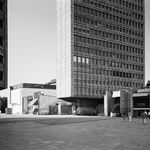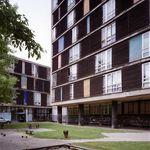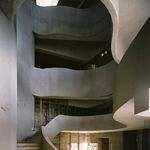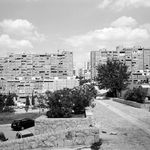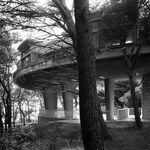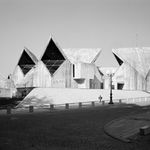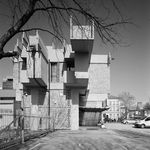International Conference in Zagreb
Conference Unfinished Modernizations: Outlining of Tendencies
Mosor Movie Theather Zagreb
1-2 October 2010
Unfinished Modernizations: Outlining of Tendencies is a conference that marks the beginning of the two-year collaboration project Unfinished Modernizations – Between Utopia and Pragmatism. Some fifty researchers from the former Yugoslav countries will research topics related to the transformation of architectural culture and built environment in the region, from the beginning of the socialist period, through the post-socialist transition, until today. By presenting the research topics, this kick-off conference will try to outline the socio-political and cultural context, as well as historical circumstances that affected the architecture and urban planning in the region, as well as the divergent directions of their development. This will help trigger a critical debate about the modernization processes and their social and cultural effects, on the example of the built environment.
On the first day of conference, esteemed lecturers and guests will set the historical and theoretical project framework of the theme from the perspective of their respective disciplines. The lecturers include professor David Harvey (The City University of New York), a renowned British-American urban geographer and anthropologists, and one of the most influential theoretician of urban space in the past few decades, dr. Ljiljana Kolešnik, art historian from Zagreb who, among other things, made key contribution to the interpretation of art in the 1950s Croatia within the ideological and social context, and dr. Dejan Jović, historian from the Stirling University, an expert in Yugoslav and post-Yugoslav history. Dafne Berc and Maroje Mrduljaš will host a public interview with theoretician Matko Meštrović, founder and protagonist of numerous key events and initiatives in Croatia, like the international movement New Tendencies, Gorgona art group, or the Center for Industrial Design and with architect Bogdan Budimirov, who is one of the pioneers of prefabricated construction in the region.
On the second day of the conference, the research teams participating in the project will present the themes of their researches, followed by a discussion about the directions the future collaboration will take.
The conference shall be accompanied by the exhibition Frames of Modernist Heritage by the Viennese photographer Wolfgang Thaler. In the past two years, he traveled around former Yugoslavia, photographing socialist period architecture. His work is a testament to the individual architectural cultures of the countries of the former Yugoslavia, about the credibility and eloquence of different architectural languages that were developed on a relatively small and heterogeneous territory, as a consequence of general modernization processes and individual poetics. For the first time in one place, Thaler’s extensive and painstakingly collected photographic data will be shown in one place. Very subtly and atmospherically it records the current condition and life of architecture in the region. The exhibition is also a rather extensive, perhaps surprising, and completely subjective view of the exciting and extremely rich body of modernist and post-modernist architecture in former Yugoslavia that has never before been coherently presented or systematically processed. The exhibition opens on 2 October in Vladimir Nazor Gallery.
The conference Unfinished Modernizations – Outlining of Tendencies marks the beginning of the two-year collaboration and research project called Unfinished Modernizations – Between Utopia and Pragmatism, a part of the Culture 2007-2013 programme, supported by the European Union. Along with the Croatian Architects’ Association, which is the leader of the program, the partners in the program include: Institute for Contemporary Architecture (Zagreb), Trajekt (Ljubljana), Umetnostna galerija Maribor (Maribor Art Gallery), Belgrade Architects’ Society, and the Coalition for Sustainable Development (Skopje).
This platform for collaboration in the field of architecture and urban planning gathers 16 interdisciplinary teams. Over the course of two years, they will research various architectural and urban planning phenomena within the social, economic and cultural context of socialist Yugoslavia, and the reflections of these processes in today’s independent states after Yugoslavia’s demise. The researches will focus on the ways in which the architecture and urban planning were influenced by the concepts of modernization and the social experiment of construction in the self-government socialist society, and what influence did the architecture and urban planning have on creation of the social reality. In that sense, architecture and urban planning are seen as an integral part of the process of general modernization of the society, and also as a specific cultural phenomenon. The researches will attempt to identify and critically interpret architectural and urban planning models and processes that gave a cultural and social contribution to the modernization processes, as well as reassess the ways in which the modernization heritage continued to develop or deconstruct in transition and post-transition circumstances.
The project is divided into four theme segments: Critical theory and historical interpretation, Outlining of phenomena and mediation of architecture, Transition and post-transition conditions, Current practices and perspectives.
Project activities include: researches by 14 interdisciplinary teams from the countries that succeeded Yugoslavia; conferences that will be held in all countries involved in the project, exhibitions, publications and a web page. The final exhibition with the presentation of project results will be held in Maribor, European Capital of Culture 2012.
Project founders are Vladimir Kulić (Florida Atlantic University) and Maroje Mrduljaš (Faculty of Architecture, University of Zagreb).
The project is co-financed by the Education, Audiovisual and Culture Executive Agency (EACEA), European Cultural Foundation (ECF), ERSTE Stiftung, Croatian Ministry of Culture.
1 October 2010, Mosor Movie Theater
5 pm – 10 pm: Ljiljana Kolešnik, Dejan Jović, Public interview: Matko Meštrović, Bogdan Budimirov David Harvey
2 October 2010, Mosor Movie Theater
10 am – 2 pm: Presentation and introduction to the 16 research teams
2 pm – 3 pm: Break
3 pm – 4 pm: Discussion
8 pm: Galerija VN Opening of the exhibition Frames of Modernist Heritage by Wolfgang Thaler
FREE ENTRY!
